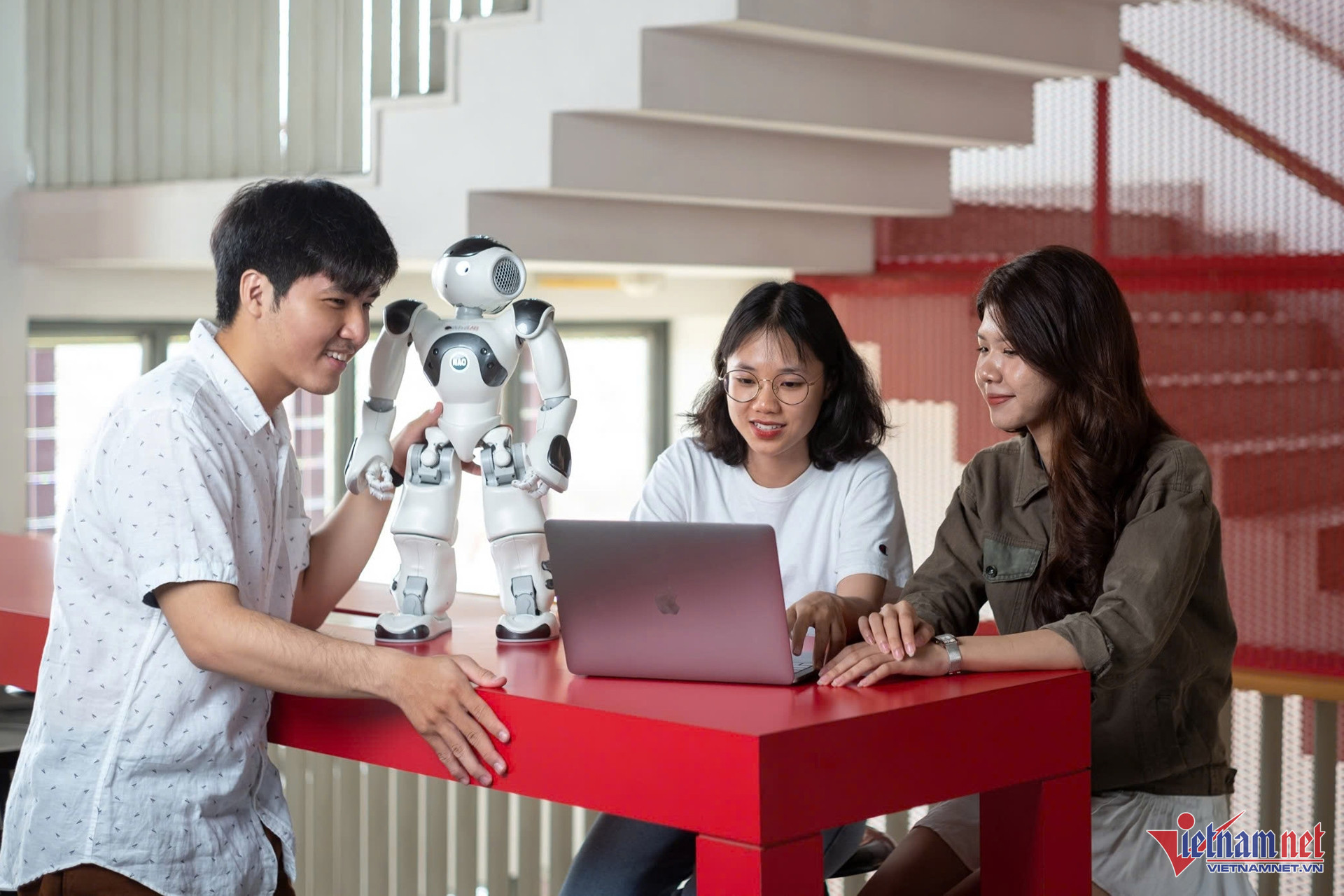
At the launch of the "Vietnam Education Innovation Forum with AI 2025" on April 9, Tara O'Connell, Head of the Education Program at UNICEF Vietnam, pointed out that AI is revolutionizing education, making it more inclusive, adaptable and effective.
AI offers Vietnamese teachers opportunities, from automating admin tasks to enhancing personalized learning, helping the country compete globally.
Tara O'Connell noted that AI can boost inclusivity through personalized learning, and allow remote teaching support and high-quality resources for underserved communities, including remote schools and emergencies.
AI could also address teacher shortages by offering AI-based professional development and easing admin burdens.
It can also improve access for disabled children, support multilingual learning, and enhance data-driven decisions for equitable resource allocation and education access.
Pros and cons
"Yet, a lack of digital skills, especially AI literacy, among teachers and education managers will hinder effective adoption of advanced ed-tech. Without digital pedagogy and AI tools, teaching methods will stay outdated and less effective," the UNICEF Vietnam expert said.
Vu Minh Duc, Head of the Teachers and Education Managers Department at the Ministry of Education and Training, said that along with opportunities in personalized learning, interaction, teaching support, assessment and management, AI poses new ethical, legal, and equity challenges in tech access.
Nguyen Chi Thanh, Dean of Pedagogy at the University of Education, a member school of the Vietnam National University Hanoi, said AI is deeply involved across fields, especially education.
In general education, AI trends include tracking student progress and adjusting lesson difficulty; using chatbots to answer questions, find info and schedule study; and grading assignments and tests.
In Vietnam, a recent study found that 15 percent of schools in major cities use AI: 25 percent in Hanoi and 30 percent in HCM City. Yet, 80 percent of teachers haven’t attended AI training courses.
"Teachers using AI tools beneficially is crucial. Training teachers and building AI competency frameworks for students are key when discussing AI in education," Thanh noted.
Using AI with caution
Sharing his study "AI’s Impact on Vietnam’s Education" conducted with his co-workers, Thanh stressed that it is necessary to be cautious when using AI. He said AI lacks uniformity and scale, raising concerns over dependency, ethics, accountability, and data safety.
Three negative impacts have been highlighted, including over-reliance risks; dependence on AI "hallucinations and biases"; and AI-enabled cheating in assessments.
Over-reliance on AI may cut basic skills, creativity, and autonomy in teaching and learning. Plus, AI tools, especially large language models (LLM), may "hallucinate" or show unwanted biases, affecting accuracy and fairness.
"AI tools’ growth spawns sophisticated cheating methods, and is hard to detect without equipping teachers with proper skills," the expert said.
Chu Tuan Anh, Director of Aptech International Programmer Training System, noted that the view that student reliance on AI stifles creativity is valid and worrying. If students use AI for homework, solutions, or copying without thinking, they won’t innovate. This harms individuals and the economy.
"AI’s benefits are huge, but negatives need control. The internet was once criticized for 'just copying,' now info retrieval is a must-have skill. With AI, instead of dependency, we must master it. AI is just a tool, while humans shape outcomes. We need awareness of pros and cons, using AI effectively with education to avoid over-reliance," Anh said.
Testing and exams are evolving, focusing on assessing comprehension and picking optimal answers for specific contexts, not just rote knowledge.
The Aptech expert stressed that educational institutions should definitely allow, even mandate, AI use to seize pioneering tech opportunities. At Aptech, students are encouraged to use AI daily. When struggling with tough programming concepts in class, they turn to AI for simpler explanations.
For coding assignments, AI generates code, but more crucially, students compare and analyze options to find the best solution. Beyond that, they can have AI act as an examiner by posing questions, grading, revealing knowledge levels, and addressing gaps.
"Still, students’ AI use needs oversight. Copying AI solutions or knowledge risks creating a generation that doesn’t think, which is a disaster for an economy already short on skilled, knowledgeable workers, now lacking critical thinking, too," Anh said.
Anushka Siriwardana from RMIT Vietnam said that, by fostering a learning culture that values questioning and encourages students to challenge AI-generated info, teachers can better equip learners to use tech consciously, boosting their critical thinking in AI-supported settings.
Van Anh